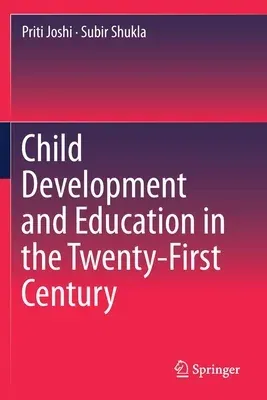This book provides an in-depth understanding of how children's
development at different stages of their lives interfaces with the kind
of education and support they need at school and home. It examines
closely how education, in turn, influences their development and
prepares them for an uncertain future. The chapters focus on the rapid
developments of the 21st century that are changing the nature of
education, especially the shift needed to being able to sift through and
meaningfully deal with overwhelming volumes of information now
available. This book helps readers understand how children can benefit
from the digital environment while avoiding its pitfalls. Keeping in
mind that in today's world parents are getting to spend less time with
their children, the authors provide research-backed ideas on how they
can best enable children's development, including their thoughts,
feelings and notions of self. Given the increasing disparities, there is
a perceptive analysis of how education can build an awareness of equity
in a context marked by diversity and disadvantage. This book addresses
issues such as these in a reliable, scholarly yet accessible manner, for
students, young researchers and lay readers. Consequently, it is a
valuable source of fundamental insights and understanding for educators,
policy-makers, educational administrators and students of human and
child development, education, and teacher training courses.


